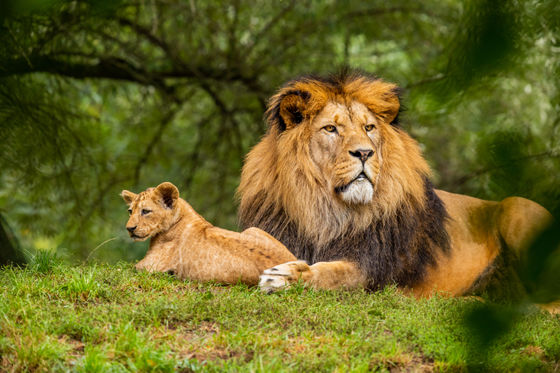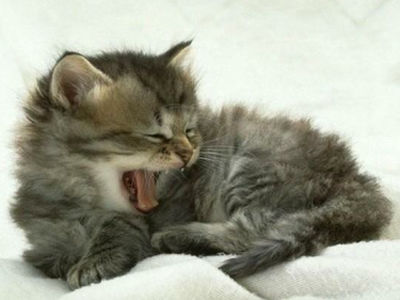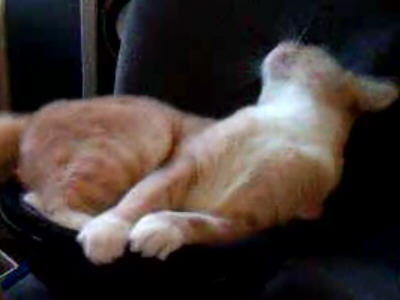Why do cats squeak but 'do not bark'?

Cats are known to squeak, but not only cats, but also felines such as cheetahs and cougars. So all cats throat, lions, tigers and jaguars can't throat and instead have the ability to 'bark'. John Wibble, a mammal specialist curator at the Carnegie Museum of Natural History, explains the characteristics of cats that can only be snorted or barked.
Why can't house cats roar? | Live Science
https://www.livescience.com/why-house-cats-cannot-roar
It is well known that cats rumbling when they are relaxing, but cheetahs, cougars, and lynxes are also known to rumbling. And these felines do not bark.
Cheetah Purring --A Cute Big Cat Videos Compilation --YouTube
Lions, tigers and jaguars, on the other hand, do not throat but bark.
Lions Roaring Compilation-YouTube
In this way, the act of snorting and the act of barking in the cat family have an exclusive relationship. According to Mr. Wibble, species that can bark are rare, only the genus Panthera, which is a representative of the large feline family with the exception of the snow leopard , barking, and other felines snort.
The sound that cats make from their mouths is produced by the air discharged from their lungs shaking their vocal cords, just like humans. There are some unclear points as to why the throating and barking are exclusive, but Wibble explains that there are two possible causes: the hyoid bone and the larynx.
According to Wibble, every mammal has a small bone called the hyoid bone below the mandible, between the base of the tongue and the larynx. And in the barking feline, a pair of elongated elastic ligaments that make up the hyoid bone have a unique arrangement, and it seems that the vocal cords can be moved downward enough to produce bass.
Also, the larynx itself is different for throating and barking species. In barking seeds, the tissues that make up the vocal cords are longer, more elastic, tougher, thicker and more fat. In a paper published in 2011, a reproduction of the fundamental frequencies of sound that could be emitted from the biomechanical and morphological data of the vocal cord tissues of lions and tigers produced a roaring bass but throated. It is concluded that it cannot ring.

Mr. Wibble speculates that the reason why the barking of felines differs between large and small species as described above is that there may be some evolutionary advantage, but the act of barking is used to protect the territory. However, there is no clear answer as to what the throating action means in the wild environment. There is a theory that the throating sound produces a calming effect and that it is used to cheat the kitten's bark from foreign enemies, but Mr. Wibble said, 'As far as I know, the cat I own is a sign of satisfaction. But I don't know if that's true for wild cats that can throat. '
Related Posts:
in Creature, Posted by darkhorse_log







